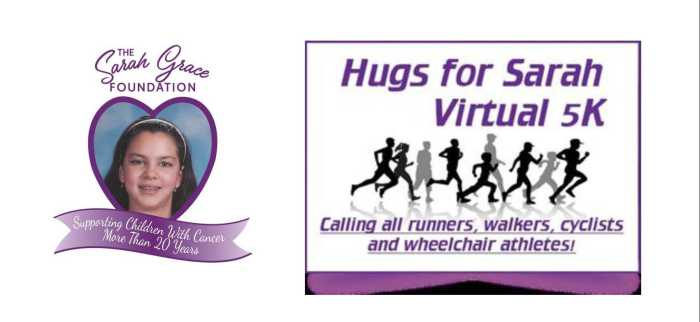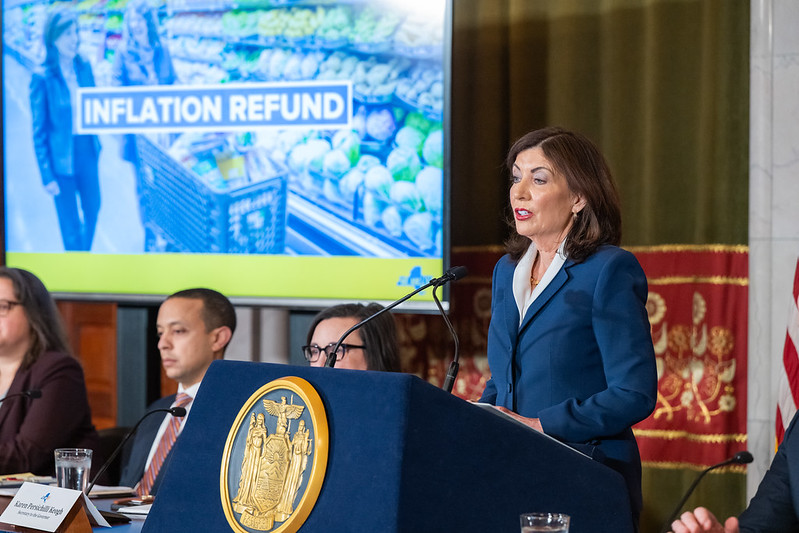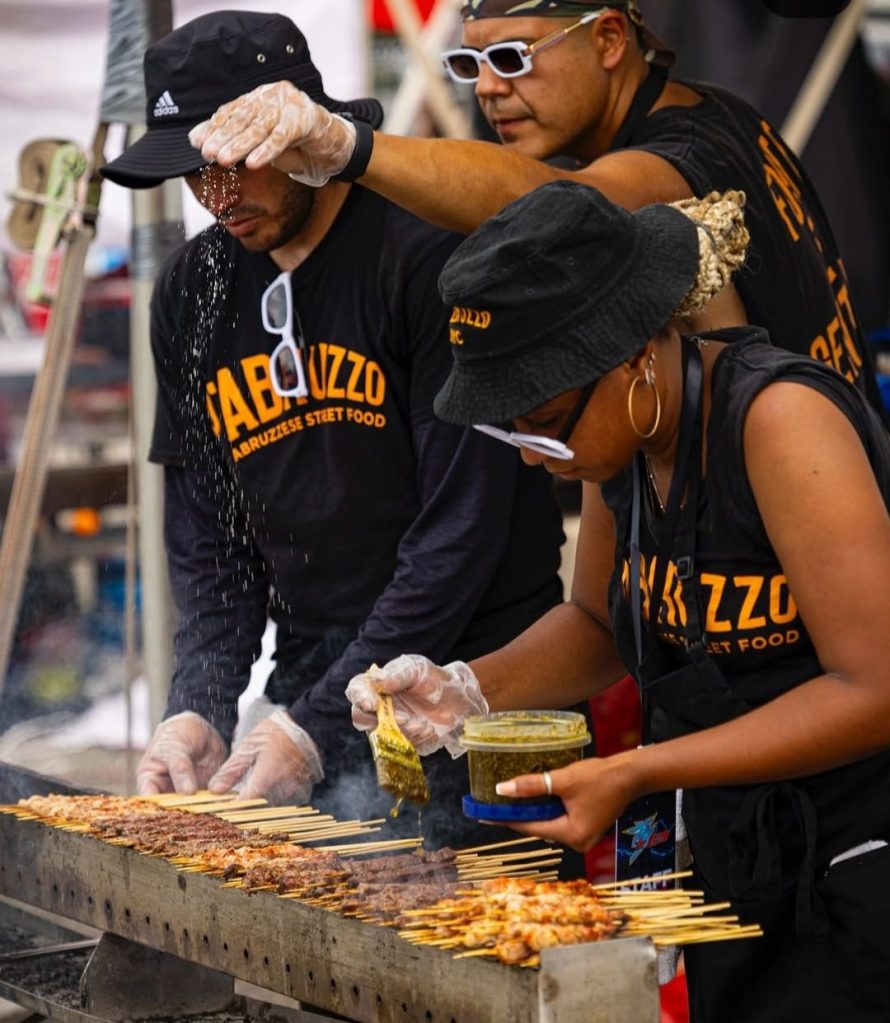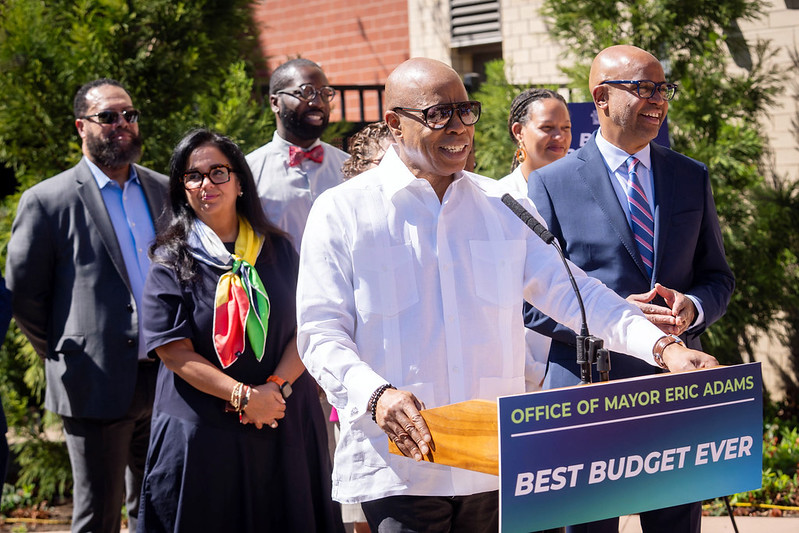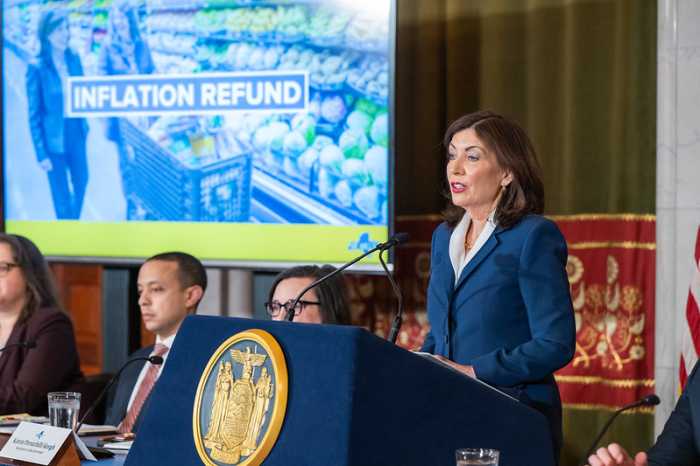Brother can you spare a dime?
In these economic times, with hikes in everything from rent to MetroCard fares, making ends meet with a low-paying job can be difficult.
With this in mind, the New York State Department of Labor recently announced it would raise the minimum wage by 10 cent, though Labor Department representatives acknowledged the increase’s shortcomings.
“In this tough economy, every little bit helps,” said Terri Gerstein, Deputy Commissioner of Labor Standards for the Department of Labor during a press conference at the CUNY Graduate School of Journalism on Monday, July 27.
On Friday, July 24, the New York State minimum wage rose from $7.15 per hour to $7.25 per hour. The increase came in compliance with the Federal Fair Minimum Wage Act of 2007, which called for three incremental rises – from $5.15 to $5.85 by July 24, 2007, to $6.55 by the same date in 2008, and to $7.25 by that date in 2009 – in the national base salary. The minimum wage in New York State had not been subject to any of the three previous hikes, as it had remained stuck at $7.15 since January 2007.
The 10 cent increase marks the first time since 2005 that the New York State minimum wage is not higher than the rest of the country. State officials said that this might be inadequate considering the disparity between the cost of living in New York City and the rest of the country, but they hoped that those making minimum wage – as well as those earning slightly above it, who would also see their salaries rise as a result – would find a way to benefit as much as they could from the moderate increase.
“Even this modest increase will have some effect on the low-wage industries of New York,” said Raj Nayak, staff attorney for the National Employment Law Project (NELP), who along with Labor Department’s representatives emphasized enforcement.
If employees, employers, and the public do their part to obey the Labor Department’s laws and report violations, Labor officials argued, the ramifications would be more significant than the 10 cent hike itself. This is because employees are traditionally afraid to report violations for fear of retaliation by employers – which is illegal – by getting fired especially with the current dismal economic climate that only exacerbates these fears.
“This desire to keep any job, even if it’s not a very good one, is really pulling down standards,” said Nayak.
A representative of the Bureau of Immigrant Labor of the Department of Labor emphasized the department’s commitment to ensure that all New Yorkers receive the minimum wage to which they are entitled, regardless of whether or not they are documented.
As the panelists repeatedly stated, the Department of Labor does not cooperate with the Department of Immigration, and labor investigators will not ask employees for their immigration status. “Undocumented workers are covered by basic labor laws,” said Gerstein, adding that a worker’s immigration status is “not relevant” to Labor Department investigators.
Gerstein said the Department of Labor had provided employers with signs announcing the minimum wage, which must be placed in a space in the workplace where employees can easily see it.
“Even though it’s only a 10 cent increase, it’s another chance to tell people that there is a minimum wage, and that it’s important and it has to be enforced,” said Nayak.



